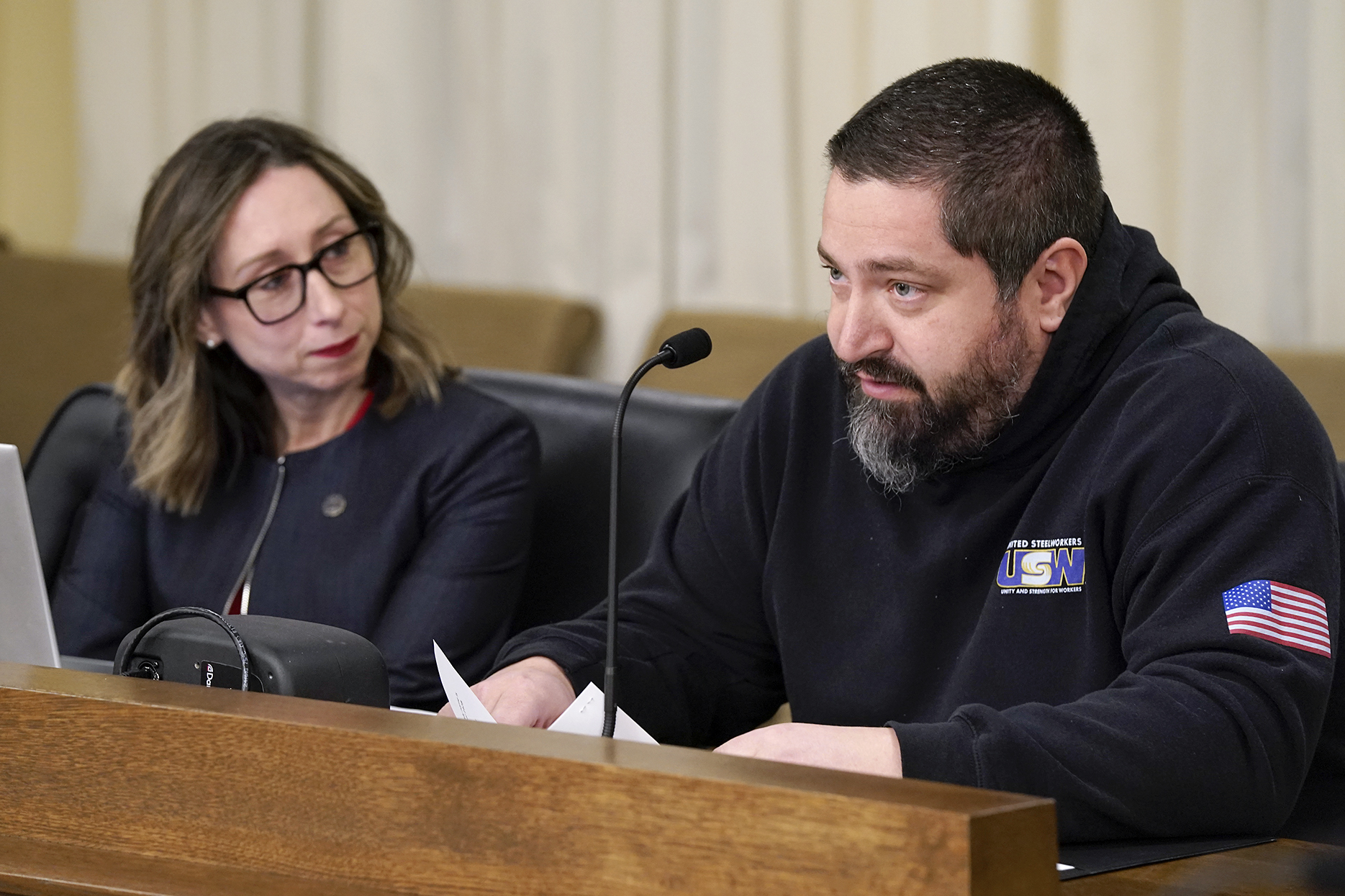House panel considers bill extending unemployment benefits to striking workers

Strikes are the last resort for workers and are nothing like quitting work to look for something better, said Rep. Kaela Berg (DFL-Burnsville).
“Workers are forced out on strike by their employers’ refusal to bargain a fair contract,” she said.
And when there is a strike, employers have an incentive to stall negotiations, counting on financial hardships to force workers into concessions.
Berg has proposed HF107 that she believes would help address a power imbalance that is increasingly tilted toward employers. The bill, which would allow striking workers to receive unemployment benefits, was laid over Thursday by the House Workforce, Labor, and Economic Development Finance and Policy Committee.
“We have an opportunity to set an example on how to support our workers when an employer engages in unfair labor practices, refuses to bargain in good faith, and refuses to comply with safety standards,” Berg said.
Supporters say it would help shrink a wealth-and-power gap between management and labor, reflected in single employers gaining monopolies over entire labor sectors and corporate profits outpacing worker pay increases.
Since unemployment insurance benefits offer only partial wage replacements, there is little incentive for striking workers to stay off the job, said Rep. Emma Greenman (DFL-Mpls). “This is just a lifeline that helps even the playing field.”
[MORE: Written testimony for and against the bill]
Opponents, however, say extending unemployment insurance benefits to striking workers would hit public sector employers and small businesses hard.
Most public employees don’t pay into the unemployment insurance program, but are reimbursement based, wrote representatives of city and county groups. “This means that if a bargaining unit were to go on strike and the local government temporarily assigned staff to fulfill a public safety need, they would be liable for paying the full unemployment cost for the entire striking unit.”
Jon Boesche, Minnesota state director for the National Federation of Independent Businesses, wrote this could result in higher unemployment rates for all employers, who have seen increased payroll tax rates and a 5% assessment in the past year.
Related Articles
Search Session Daily
Advanced Search OptionsPriority Dailies
Stable budget outlook projects $3.7 billion surplus now, no deficit in next biennium
By Lisa Kaczke The projected surplus for Fiscal Years 2026-27 is now higher than it was in the November estimate, and no deficit is projected for the next biennium.
“Minnesota’s budge...
The projected surplus for Fiscal Years 2026-27 is now higher than it was in the November estimate, and no deficit is projected for the next biennium.
“Minnesota’s budge...
Legislative leaders set 2026 committee deadlines
By Lisa Kaczke Legislative leaders on Tuesday officially set the timeline for getting bills through the committee process during the upcoming 2026 session.
Here are the three deadlines for...
Legislative leaders on Tuesday officially set the timeline for getting bills through the committee process during the upcoming 2026 session.
Here are the three deadlines for...